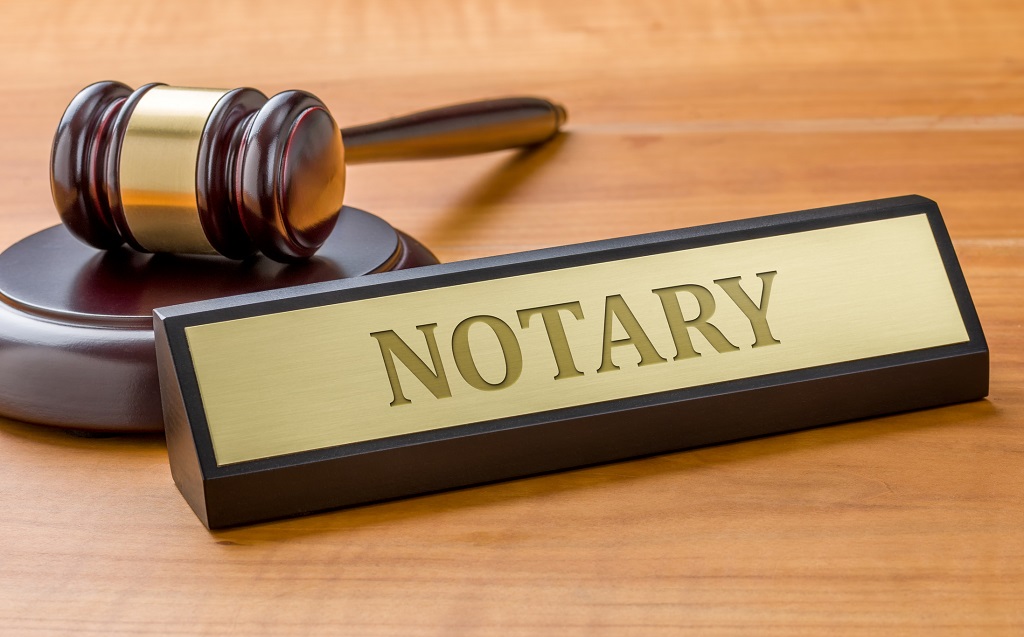Notary Public in Thailand

A notary public plays an essential role in legal and commercial transactions by verifying documents, authenticating signatures, and ensuring the integrity of legal acts. In Thailand, the concept of a notary public differs from that of many Western jurisdictions, yet notarial services remain critically important for both domestic and international matters. Understanding the role and importance of a notary public in Thailand helps individuals, businesses, and foreign nationals navigate legal procedures with confidence and compliance.
Legal Status of Notary Public in Thailand
Thailand does not have a separate statutory position called “Notary Public” in the same sense as common law countries. Instead, notarial functions are performed by licensed Thai lawyers who are certified by the Lawyers Council of Thailand as “Notarial Services Attorneys.”
These attorneys are authorized to perform notarial acts such as verifying identities, witnessing signatures, certifying copies of documents, and administering oaths. While the title differs, their functions closely align with international notarial standards, making their services widely recognized both within Thailand and abroad.
Core Functions of a Notary Public in Thailand
The primary function of a notary public in Thailand is to authenticate documents and confirm their legal validity. This includes verifying the identity of signatories, ensuring that documents are signed voluntarily, and confirming that the parties understand the content of the documents.
Notarial services commonly include certifying signatures, notarizing affidavits, certifying true copies of documents, witnessing declarations, and authenticating powers of attorney. These services are essential in preventing fraud and ensuring the credibility of legal documentation.
Importance in International Transactions
Notary public services in Thailand are particularly important for international transactions. Foreign governments, overseas courts, embassies, and international organizations often require documents originating in Thailand to be notarized before they are accepted.
Common examples include visa applications, company incorporation documents, overseas property transactions, inheritance matters, and foreign litigation. A notarized document provides assurance to foreign authorities that the document has been properly executed and verified under Thai legal standards.
Supporting Business and Corporate Activities
In business and corporate contexts, notarial services are frequently required for shareholder resolutions, corporate affidavits, powers of attorney, and cross-border agreements. Notarization helps confirm the authenticity of corporate documents and the authority of signatories.
For foreign investors and multinational companies operating in Thailand, notarized documents are often essential for compliance with international corporate governance requirements. These services facilitate smoother business operations and reduce the risk of legal disputes.
Role in Property and Real Estate Transactions
Notary public services play an important role in property and real estate matters in Thailand, particularly when foreign buyers or overseas transactions are involved. Powers of attorney used for land registration, mortgage documentation, and property transfers often require notarization.
Notarization provides an added layer of legal assurance by confirming the identity and intent of the parties involved. This is especially valuable in high-value transactions where authenticity and accuracy are critical.
Enhancing Legal Certainty and Trust
One of the key benefits of notary public services in Thailand is the enhancement of legal certainty and trust. By verifying documents and signatures, notaries help ensure that legal acts are genuine and enforceable.
This trust is essential in both personal and commercial transactions. Parties are more willing to rely on documents that have been notarized, knowing that proper verification procedures have been followed.
Preventing Fraud and Misrepresentation
Fraud prevention is a central function of notarial services. By confirming identities, witnessing signatures, and reviewing documents for completeness, notaries help reduce the risk of forgery, impersonation, and misrepresentation.
In Thailand, where documents may be used across borders, the role of notarial services is particularly important in safeguarding the integrity of legal transactions and protecting the interests of all parties involved.
Use in Court Proceedings and Legal Matters
Notarized documents are often required in legal proceedings in Thailand and abroad. Affidavits, sworn statements, and declarations submitted to courts or government agencies typically need notarization to be considered valid.
Notarial services help ensure that such documents meet evidentiary standards, increasing their reliability and acceptance in judicial processes. This contributes to more efficient and effective dispute resolution.
Importance for Foreign Nationals and Expatriates
Foreign nationals living or doing business in Thailand frequently rely on notary public services for various legal and administrative matters. These may include certifying passports, notarizing employment contracts, authenticating marriage or divorce documents, and preparing documents for use overseas.
For expatriates, access to reliable notarial services simplifies complex legal procedures and ensures compliance with both Thai and foreign legal requirements.
Limitations of Notarial Services in Thailand
While notarial services in Thailand are widely recognized, it is important to understand their limitations. Notarial Services Attorneys cannot certify certain acts that are exclusively reserved for government authorities, such as land title registration or official civil status registration.
Additionally, some foreign jurisdictions may require further authentication, such as legalization by the Ministry of Foreign Affairs or an apostille-equivalent process, before accepting Thai-notarized documents.
Professional Standards and Responsibilities
Notarial Services Attorneys in Thailand are bound by professional and ethical standards set by the Lawyers Council of Thailand. They are responsible for performing due diligence, maintaining impartiality, and ensuring the accuracy of notarial acts.
These standards help maintain the credibility and reliability of notarial services, reinforcing public confidence in the legal profession.
Conclusion
Notary public services in Thailand play a vital role in facilitating legal, commercial, and international transactions. Although the system differs from traditional notary public frameworks, the functions performed by Notarial Services Attorneys are essential in ensuring document authenticity, legal certainty, and trust. For individuals, businesses, and foreign nationals alike, understanding the role and importance of notary public services in Thailand is key to navigating legal processes efficiently and securely.
